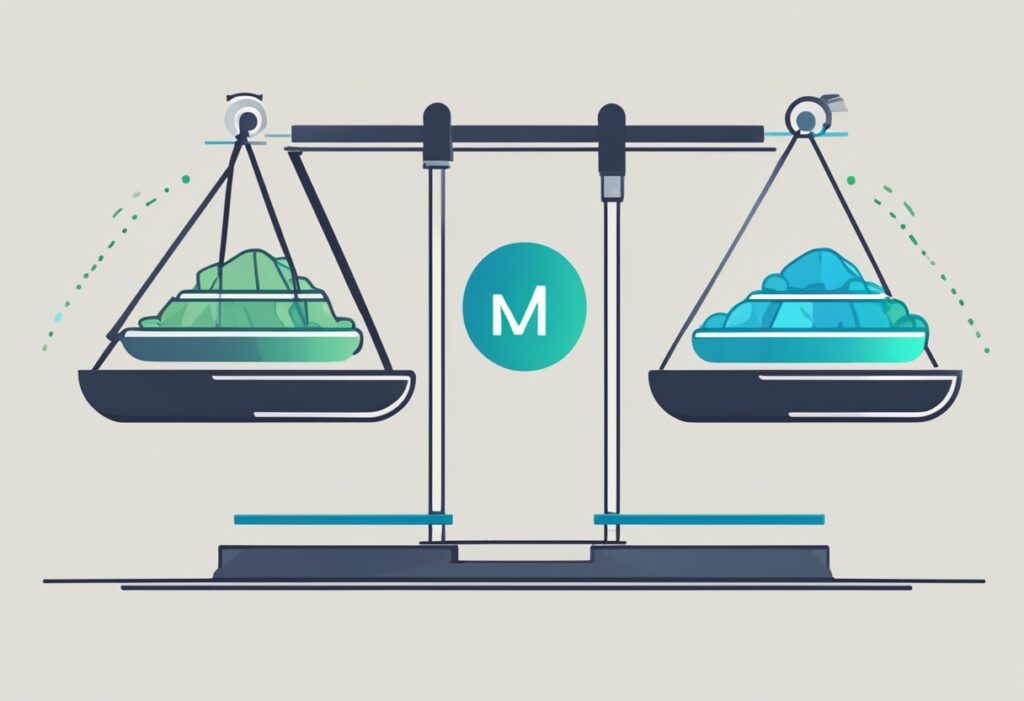Deciding on a career path can feel like standing at a crossroad, with each direction promising its own set of rewards and challenges. You might find yourself wondering which role, product manager or program manager, will take you down the path of higher earnings. It’s a valid consideration as these roles share similarities, but they diverge distinctly in responsibilities and, often, in pay.

Program managers generally tend to earn more than project managers on average, but when it comes to product managers, the scales can tip. In the tech industry, a product manager’s salary averages at $111,174 per year, potentially surpassing that of a program manager.
In this article, you’ll discover the nuances between these two pivotal roles and how their compensations compare across various industries. We’ll dive into factors influencing their salaries, such as experience, location, and company size. You’ll learn why these positions command different salaries and how you might maximize your earning potential within each role.
Understanding the Roles

In determining who might earn more, you’ll need to grasp what each manager does and how they contribute to an organization.
Role of a Product Manager
A Product Manager focuses on a product’s life cycle from conception to launch. Your core responsibilities involve developing a product vision and strategy based on market research and customer needs. By leading the product team, you guide the planning and execution of product development, ensuring that the final product aligns with the company’s goals. You’re instrumental during the product launch, setting the direction for the product to evolve as needs change.
Role of a Program Manager
Conversely, a Program Manager oversees numerous related projects—what we call initiatives—within the company. You’ll strategize program management, focusing on cross-functional teams, and handle scheduling, resource allocation, and risk management to achieve organizational objectives. By synchronizing these projects, you ensure that they align with the larger management and organization goals, steering them to complement each other and the company’s broader strategy.
Key Skills and Expertise

Understanding the specific skills required for product and program managers is essential to grasp how these roles differ and overlap. In this evolving market, excellence in strategy and communication for both roles is no longer just preferred, but expected.
Essential Skills for Product Managers
As a product manager, your product management abilities stem from a mix of soft and hard skills. Strategic thinking and problem-solving are at the core of your workday, as you define the ‘what’ and ‘why’ of products.
- Communication Skills: Your ability to articulate product vision and distill complex information is key. This includes being a spokesperson for user needs throughout the product lifecycle.
- Leadership and Prioritization: You shine in leading cross-functional teams, guiding them with clarity and purpose. Knowing how to prioritize tasks in a product’s roadmap is crucial for you as a means to balance various stakeholder interests.
- Creativity and Market Knowledge: Creating innovative products requires a solid understanding of the market. With your creativity, you identify novel opportunities and navigate through competitive landscapes.
- Customer Satisfaction: To measure the success of your products, you frequently assess customer feedback and satisfaction, adjusting your strategies to enhance user experience.
Excelling in these areas often leads to product success and can translate into higher compensation for product managers.
Essential Skills for Program Managers
Your role as a program manager revolves around the orchestration of multiple projects and ensuring the achievement of broader organizational goals. Your program management expertise includes developing comprehensive plans and leading diverse teams.
- Communication and Leadership Skills: Effective communication is foundational; you regularly communicate progress, risks, and victories to stakeholders and team members. Strong leadership skills enable you to become a mentor and a guide.
- Strategic Thinking and Risk Mitigation Plan: You tackle complex problems with astute strategic thinking, always prepared with a risk mitigation plan.
- Conflict Resolution and Team Collaboration: Navigating team dynamics requires adept conflict resolution skills. You cultivate environments where team members collaborate effortlessly and push towards common objectives.
Comparing Salaries and Compensation

When considering a career as a product manager or program manager, you’ll find that various factors influence their respective salaries. From industry trends to years of experience, these roles often carry different compensation packages that reflect their distinct responsibilities.
Factors Influencing Product Manager Salaries
Your salary as a Product Manager hinges on several key components. Industry variation is significant, with tech sectors often offering higher pay due to the role’s pivotal nature in Agile development and sales planning. Essential skills like budgeting and developing product features that drive customer satisfaction and return on investment also influence your earning potential. A Product Manager in the United States earns an average of $113,000 per year, but this can escalate with more experience or advanced roles within the field.
Factors Influencing Program Manager Salaries
Program Managers oversee multiple projects and thus, their salary is strongly affected by their capacity to manage budgets, finance, and resource allocation. Industries with large-scale projects may offer more lucrative packages. The complexity of projects and the significance of maintaining a balance between the market needs and expenditure contribute to their overall compensation. The median salary for a Program Manager in the United States is noted to be around $138,128.
Understanding Salary Surveys and Reports
Navigating through salary surveys and reports can offer you valuable insight into the career path for either job title. These reports typically take into account professional experience, HR analytics, and market competitiveness. However, it’s crucial to read these reports with discernment, since they often present averages that might not factor in individual variables such as engineering challenges or finance strategies that can sway the figures. For a comprehensive understanding, compare multiple sources, like Glassdoor reports, or those from salary surveys to gauge an accurate estimate.
Impact of Management on Business Outcomes

Before diving into the specific roles, it’s essential for you to recognize that both product and program managers play pivotal roles in shaping the success of a business. Their distinct responsibilities directly influence various business outcomes, such as market performance and strategic direction.
Product Managers’ Influence on the Market
A product manager crafts the product vision, often becoming the driving force behind the features and product roadmap that determine the product’s market success. Imagine the excitement you feel when a new feature exactly meets your needs – that’s a product manager’s strategy turning into a market triumph. These managers work closely with marketing and sales teams, ensuring that the product aligns with customer needs and drives conversion. They are key players in transforming a product vision into reality, aligning it with the organization’s goals to measure success through concrete metrics.
- Example of Product Managers’ Impact:
- Strategy Development: Determining which features will outshine competitors.
- Success Metrics: Increasing market share or user retention rates.
Program Managers’ Strategic Role in Organizations
In contrast, program managers oversee strategic initiatives and are often charged with keeping the big picture view. Your understanding of the fundamental organization goals becomes clear when a program manager adeptly aligns multiple projects under a common strategic umbrella. They supervise program schedules and manage resources across projects, ensuring the alignment with long-term strategic goals. By maintaining a tactical overview, program managers empower teams to fulfill overarching organizational aspirations, ensuring cohesive movement towards business objectives.
- Key Areas of Program Managers’ Influence:
- Strategic Planning: Coordinating various projects to support organisational strategy.
- Big Picture View: Maintaining focus on long-term business goals and outcomes.
Building a Career as a Product Manager
Starting as a Product Manager, your primary focus is on the design and product lifecycle, with milestones that include discovery, ideation, and enhancing user experience. Often part of agile development process teams, you’ll contribute significantly to bringing valuable products to market. You’ll collaborate closely with cross-functional teams to ensure the product aligns with customer needs and business goals.
- Career Path Insights: Experience Level Role Focus
- Entry Level / Junior PM: Learning basics of product design
- Mid-level PM: Managing full product lifecycle
- Senior PM/Director: Leadership and strategy
Finding mentors early in your career can give direction to your growth. As professional landmarks are reached, consider pursuing roles with more responsibility like Director of Product or VP of Product, where your influence broadens and you’re hiring and nurturing talent while guiding multiple product lines.
Advancing as a Program Manager
As you pivot towards a career as a Program Manager, note that the trajectory involves a shift from product-focused tasks to overseeing program schedules and the integrated planning and execution of multiple projects. Your role evolves into a more strategic one, directing high-level program goals and aligning them with the organization’s objectives.
- Skills to Develop:
- Leadership: Vital for steering project teams
- Coordination: Essential for managing complex programs
- Agile Development: Crucial for modern PM practices
Program Managers often hold management roles akin to that of senior leadership within project-based environments. As a Program Manager, your job responsibilities grow to encapsulate not just planning, but also execution, all while ensuring that the organization’s strategic vision is woven into the fabric of each project under your guidance. Stewarding projects through the agile development framework, you will become an architect of progress.
In each of these paths, leadership is key: You’ll not only manage teams but also serve as a pillar of motivation and innovation, fostering an environment where product and program success thrive side by side.
Navigating Challenges and Responsibilities

In the dynamic landscape of product and program management, your journey involves distinct challenges and responsibilities. As a product manager, you define the product’s purpose and vision. This entails crafting the product roadmap, setting priorities based on customer needs and market trends. You often walk a tightrope, balancing customer feedback with the vision for the product.
| Product Manager Responsibilities | Program Manager Responsibilities |
|---|---|
| Defining product roadmap | Managing a portfolio of projects |
| Prioritizing features | Achieving strategic business goals |
| Incorporating customer feedback | Coordinating between projects |
Conversely, your counterpart in program management focuses on the harmony of multiple related projects. They navigate risks and stakeholder interests with the goal of meeting broader business objectives. Conflict resolution becomes a part of your skill set, ensuring smooth interaction between teams and stakeholders.
Managing churn and maintaining stakeholder satisfaction are shared concerns, yet your approaches differ. You listen closely to customers, integrating their feedback to refine products. Program managers keep an eye on the strategic alignment, juggling various initiatives to drive long-term value.
Conclusion

In the debate of who earns more, you may find intriguing contrasts between product and program managers. Product managers, on average, have a higher income, with figures around $113,000 per year. For program managers, the average settles nearer to $103,000 annually. But don’t let these numbers alone shape your career aims.
You should consider the roles’ diverse focus areas. A product manager’s realm is the product roadmap and customer satisfaction, closely tied to the market’s response. Their work directly influences a product’s success. Conversely, program managers orchestrate a suite of projects, targeting strategic goals over immediate returns. While compensation is a factor, your passion for the role should drive your choice.
The dynamic nature of these fields means salaries fluctuate, influenced by factors like geographic location, industry, and years of experience. Upskilling and transitioning between these roles is also common. What remains constant is the value each role adds to business strategies.
Hone your skills. Explore opportunities. Your career’s potential extends far beyond the paycheck. Whether you lean towards product management or program management, each path offers unique rewards and challenges. What will truly characterize your success is your dedication to your chosen field and the mastery of your craft.
